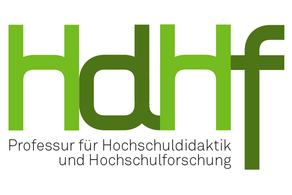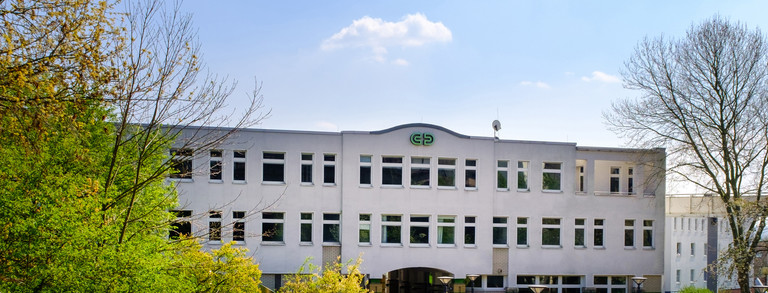Shifting Governance Arrangements and Protected Spaces in Universities
Society for Research into Higher Education (SRHE)
Annual Research Conference 2016
Session R 10: Effects of changing governance on the autonomy and control of higher education in Germany and the United Kingdom
Newport, UK
9. Dezember 2016
Abstract
In past decades, scholars have observed that the transnational and local competition in higher education, as well as the expansion of higher education, have led to unprecedented transformation of universities and have affected its core processes and core staff – academics – in manifold ways (Bleiklie, Enders, Lepori & Musselin, 2011). Since the 1980s, new public management-inspired reforms in the European systems (both Western and Central Eastern Europe) have fostered a more business-like management at universities (de Boer, Enders & Schimank, 2007). Performance measurement in teaching and research, increased competition for resources, and increased accountability to the funding agencies have become important
characteristics of higher education systems.
These changed conditions at universities have had serious repercussions about what constitutes academic work and where, how and under what conditions academics can pursue knowledge creation and dissemination activities. In many cases, teaching and learning, which were the core activities in European universities, have become 'secondary' activities because they do not really 'count' for research performance evaluations and overall individualistic performance reviews under a managerialist regime. At the same time, the accountability following the quasi-market logics has increased the oversight over all academic activities, including teaching and learning. The tensions abound for academic work in this context. This chapter aims to unravel some of these tensions, with specific emphasis on the tensions between the profession and the organization, and tensions between the logics of the quasi-market and collegiality.
This paper addresses the tensions between the academic profession and the university as an organization. It poses two questions. How are protected academic spaces created under different logics in different governance regimes? How do academics respond to threats to these protected academic spaces? It is suggested that the institutional norms of governing academic work at universities are changing whereby the academic logic guiding academic self-regulation, which encompasses professional and institutional autonomy, is being challenged by a different type of quasi-market logic which may lead to a very different environment for academic work, thus encompassing mixed logics (Greenwood et al. 2010, Thornton 2012).
To understand the shift of logics in governing higher education in a comparative systematic way across different systems, five governance mechanisms in higher education can be used (see De Boer, Enders & Schimank, 2007). Specifically, five dimensions of governance that are distinguished in this article are: academic self-governance, competition for resources, managerial self-governance, (state) regulation, and stakeholder guidance. We propose that a certain dominant logic shapes the creation of a particular configuration of governance of higher education in a given system at a particular point of time. The academic logic provides the grounds for strong academic self-governance as one can see in the Humboldtian model of university. Competition for resources following this logic is low, while managerial self-governance and state regulation can be low to medium (Leišytė, 2014). On the contrary according to the quasi-market logic in higher education, one can see strong competition for resources, strong managerial self-governance and strong stakeholder guidance. At the same time, this logic would facilitate low state regulation and low academic self-governance.
Literature on professional autonomy has pointed out that academics typically respond to the pressures of quasi-market logics are resistance to change and creation of 'protected spaces' (Leišytė, 2015). It has also been argued in the literature, that such spaces can be created also in the managerial type of universities which are stronger guided by quasi-market logic, although then they are the co-creation of academics and managers with mixes of old processes and structures preserving collegiality and new structures which albeit based on quasi-market logic – it still preserves academic freedom.
We argue that academics respond to the institutional reform processes which threaten their professional autonomy in various ways depending on how much room for discretion they have and in which organizational unit they are embedded. Here discretion is understood as the power academics possess to assert authority over the content and methods of their work as well as the prestige they hold within the academic community (Chreim et al., 2007; Leišytė, 2007). Discretion may also be influenced by the prestige of their discipline in the discipline pecking order – in which physics would claim the first place (Rip, 2012), thus even though a professor can have high prestige in her/his community, it is not necessarily the case that this person has high discretion organizationally- as the power of other disciplines may be higher in negotiating the autonomy and resources organizationally where academics from different disciplines meet.
Given the temporal dimension of protected spaces and the variability in agency among academics one could imagine switching taking place in time on both dimensions – in terms of changing the amount of protected spaces at the sub-organizational level and the level of discretion. Further, maintaining and creating protected spaces at different levels which may result in their nestedness. To conclude, the quasi-market logic results in a specific set of governance mechanisms which may potentially invade academic protected spaces through managerial interventions. At the same time academics depending on their level of discretion may act as institutional entrepreneurs and respond to various reform initiatives as open and deviant resistors, strategic gamers, new professionals, elite manager s and professional managers. Blurring boundaries of protected spaces over time seems to elicit different responses depending on the level of discretion academics have and the type of organizational settings they inhabit.
References
- Bleiklie, I., Enders, J., Lepori, B., & Musselin, C. (2011). New public management, network governance and the university as a changing professional organization. The Ashgate research companion to new public management, 161-176.
- De Boer, H., Enders, J., & Schimank, U. (2007). On the way towards New Public Management? The governance of university systems in England, the Netherlands, Austria, and Germany. In: D. Jansen (ed.), New forms of governance in research organizations: Disciplinary approaches, interfaces, and integration (pp. 137 – 152). Dordrecht, Netherlands: Springer.
- Enders, J. & de Weert, E. (2009). The changing face of academic life: Analytical and comparative perspectives. Basingstoke: Palgrave MacMillan.
- Chreim S., Williams B.E., & Hinings C.R. (2007) Interlevel influences on the reconstruction of professional role identity. Academy of Management Journal 50(6): 1515–1539.
- Greenwood, R., Díaz, A. M., Li, S. X., & Lorente, J. C. (2010). The multiplicity of institutional logics and the heterogeneity of organizational responses. Organization Science, 21(2), 521 – 539.
- Leišytė, L. (2007). University governance and academic research: Case studies of research units in Dutch and English universities. Ph.D. thesis. Enschede: University of Twente, CHEPS.
- Leišytė, L. (2014): The transformation of university governance in Central and Eastern Europe: Its antecendents and consequences. In: Leadership and Governance in Higher Education, Vol. 1., E-1-4. Raabe Verlag.
- Leišytė, L. (2015). Changing academic identities in the context of a managerial university – Bridging the duality between professions and organizations. In W. K. Cummings & U. Teichler (Eds.), The Relevance of Academic Work in Comparative Perspective (pp. 59-73). Springer International Publishing.
- Rip, A. (2012). The context of innovation journeys. Creativity and innovation management, 21(2), 158-170.
- Thornton, P. H., Ocasio, W., & Lounsbury, M. (2012). The institutional logics perspective. Oxford University Press.





